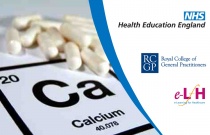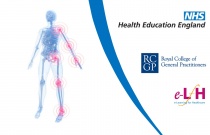Prevention of Youth Violence and Risk Associated Behaviors
Corinne David-Ferdon, Ph.D., et al.
2.50 Hours
Youth violence is a significant public health problem that affects thousands of young people each day, and in turn, their families, schools, and communities. This CEU course includes programs, practices, and policies with evidence of impact on youth violence victimization, perpetration, and risk or protective factors for youth....
Administrators - Family Therapy in Substance Abuse Treatment
Industry Specialist
1.00 Hours
This course addresses how substance abuse affects the entire family; provides basic information about family therapy for substance abuse treatment professionals and basic information about substance abuse treatment for family therapists; presents the models, techniques, and principles of family therapy; and identifies resources....
Utilising identification standards driving patient safety for better & sustainable healthcare: the Australian Capital Territory
Mr Ryan Mavin
The webinar audience is all stakeholders who wish to learn the challenges and benefits of implementing (GS1) barcodes in a care giving environment, to improve patient safety and cost effectiveness During this webinar Ryan Mavin, Lead Enterprise Architect, ACT Government, Australia explains: (1) why ACT health started on this....
Patient safety gains in a Brazilian hospital thanks to the implementation of GS1 identifiers
Nilson Gonçalves Malta
The webinar audience is all stakeholders who wish to learn more about the challenges of a hospital and its staff on a permanent journey for patient safety and for improvement of processes both in support and logistic as well as in clinical processes.
Difficult Decisions Assessing Fitness for Work
Debbie Cohen
0.50 Hours
This session looks at the potential impact that a health condition can have on a patient who is in work, on the patient's colleagues and on the public. It also examines ways in which these risks can be managed by GPs and employers.
Breast Disease: Breast Lumps
Sophie Helme and Avi Agrawal
This session outlines the key features required to fully assess a patient presenting with a breast lump. It also outlines treatment options for breast cancer including surgery to the breast, axilla and adjuvant therapies.
Burns And Scalds in Primary Care
Tammy Lo Doctor, Queen Elizabeth Hospital
0.50 Hours
This session considers the assessment and management of burns and scalds in primary care. This session was last updated on 11/02/13.
Calcium and Bone Metabolism Disorders in Primary Care
Yehani Wedatilake Specialist Registrar, London
0.50 Hours
This session looks at the common presentations of calcium and bone metabolic disorders and outlines a rational approach to their investigation.
Care of the Woman Who Has Had Unprotected Sex
Maggie Bartlett
0.50 Hours
This session covers the assessment and management of women requesting emergency contraception (EC) in primary care.
Cervical Cancer and Human Papillomavirus (HPV)
Philippa Permain
0.50 Hours
This session will discuss cervical cancer and the risks for its development, the role of the Human Papillomavirus (HPV) immunisation programme in future cervical cancer prevention, and the organisation of the UK NHS Cervical Screening Programmes.
Child as Listener and Speaker Part 1: Non-verbal Apects of Communication
Sally Bates Senior Lecturer in Clinical Linguistics and Phonetics, University of St Mark and St Joh
0.50 Hours
This session is the first of two which describe the skills and knowledge that underpin the understanding and production of spoken language and the challenges facing the young child as listener and speaker. This session focuses on the different channels and levels of speech and language processing, the cognitive skills that under....
Child as Listener and Speaker Part 2: Verbal Aspects of Communication
Sally Bates Senior Lecturer in Clinical Linguistics and Phonetics, University of St Mark and St Joh
0.50 Hours
This is the second of two sessions which describe the language processing system and the challenges facing all children learning to talk. This session describes the speech mechanism and the linguistic knowledge involved in both understanding and producing spoken language.
Communication Impairments Part 2: Specific Speech Impairments
Sally Bates
0.50 Hours
This is the second of two sessions which describe the language processing system and the challenges facing all children learning to talk. This session describes the speech mechanism and the linguistic knowledge involved in both understanding and producing spoken language.
Communication Impairments Part 4: Autistic Spectrum Disorders, Down Syndrome and AAC
Lynne Bremner Specialist Speech and Language Therapist, NHS Lothian
0.50 Hours
This session is the last of four that looks at different speech, language and communication impairments. The session covers autistic spectrum disorder and Down syndrome. It describes the defining characteristics, prevalence and diagnostic criteria for each condition as well as the referral routes and key supporting agencies. It....
Community-Based Drop-In Services For Young People
Gill Turner Consultant Community Paediatrician, Northumberland and Naomi Jones Paediatric Speciali
0.50 Hours
Introduction to the principles and practical aspects of young people friendly services and the skills health professionals need to work effectively in community-based multi-agency teams.
Connective Tissue Disease
Graham Davenport General Practitioner, Nantwich
0.50 Hours
This session will enable doctors to identify connective tissue diseases (CTDs) that are often seen in primary care, to distinguish between the main CTDs, to investigate, to monitor treatment and to support these patients.
Dental Health Promotion
Elizabeth O'Sullivan Consultant in Paediatric Dentistry
0.50 Hours
This session aims to enhance your knowledge and skills regarding oral health and factors that predispose to poor oral health. Promoting oral health in the infant and young child forms an integral part of this session.
Diagnosis and Management of Gout
Samer Ghazawy GP, Hereford
0.50 Hours
This session covers the diagnosis and management of gout, and how to differentiate gout from other acute arthropathies, including septic arthritis. It also covers treatments for both acute and chronic gout.
Ethics: Background and its Importance
Aidan Macfarlane MA (Oxon), MA (Cantab), MB, BChir, FRCP, FRCPCH, FFPHM
0.50 Hours
This session introduces you to the concept of bioethics and its importance when approaching adolescent health care, particularly in relationship to sexual and reproductive health issues.
Prenatal Diagnosis
Alison MacIsaac General Practitioner
0.25 Hours
This session explores key issues around pre-natal diagnosis in primary care. It discusses testing for Down syndrome, neural tube defects, cystic fibrosis, haemoglobinopathies and infections in pregnancy.
Safeguarding Adolescents
Andrea Goddard Consultant Paediatrician
0.50 Hours
This session aims to help you understand specific issues relating to child protection for adolescents and the wider context of safeguarding.
Pain Management in Palliative Care
Chantal Simon
Pain control is the cornerstone of palliative care. This session aims to provide GPs with a strategy to provide good pain management for patients in palliative care situations. This session was reviewed by Neil Metcalfe and last updated on 19/02/13.
Principles of Palliative Care
Chantal Simon
0.50 Hours
Helping patients to die with dignity and with minimal distress is one of the fundamental aspects of medicine.
Postnatal Depression
Clare Etherington GP Trainer and Tutor
0.50 Hours
This session covers postnatal depression and is presented in the form of a clinical case.
Assessment of Dental Age
Helen Rodd
This session describes the main approaches to dental age assessment for children. It also provides detailed guidance on how to carry out accurate age determination using a well accepted technique (Demirjian’s method of dental ageing).






















